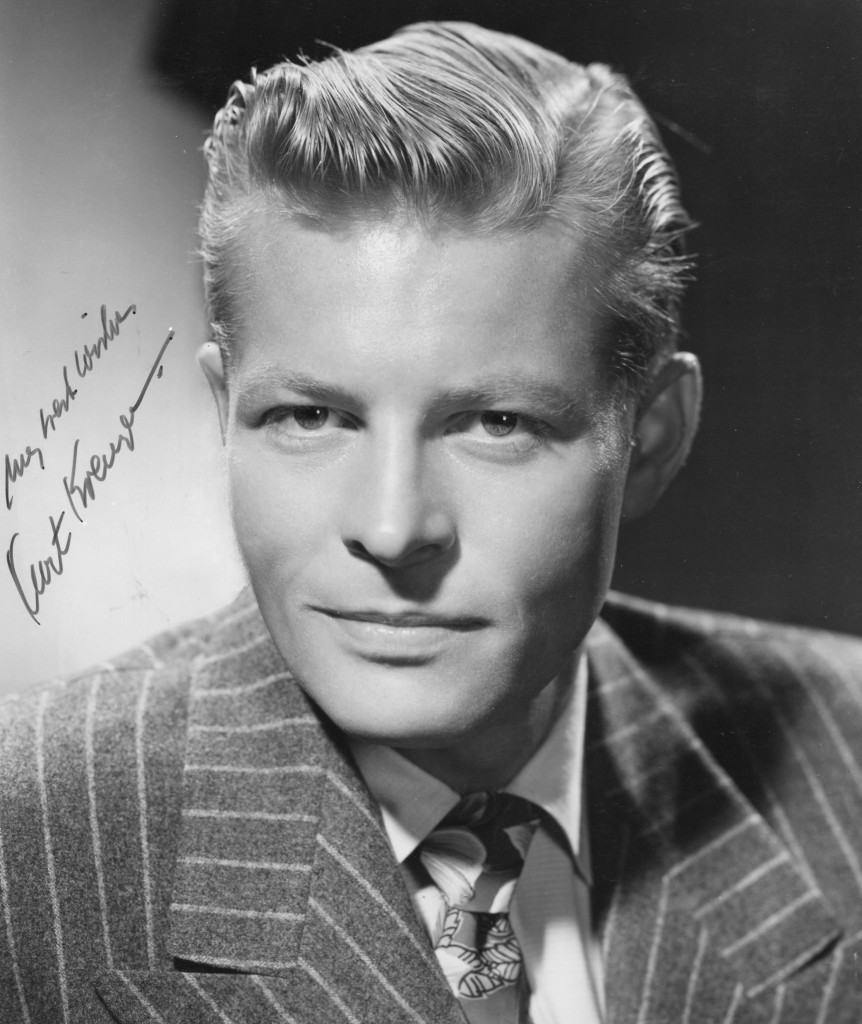
Kurt Kruger obituary in “The Guardia “ in 2006.
Ronald Bergan’s obituary in “The Guardian”:
From 1940 to 1945, when Hollywood was fighting a propaganda war against Germany, the tall, handsome, blue-eyed blond German-born actor Kurt Kreuger, who has died aged 89, was much in demand as a nasty Nazi. He stood around (sometimes uncredited) looking arrogantly aryan in Gestapo, SS, Luftwaffe, German army or navy uniforms in dozens of films of the period, including Fritz Lang’s Hangmen Also Die (1943), The Strange Death of Adolph Hitler (1943) and The Hitler Gang (1944).
His first major role was in Zoltan Korda’s Sahara (1943), in which he is a Nazi pilot shot down by Humphrey Bogart’s tank patrol in North Africa and kept prisoner. Although an Italian prisoner starts to come over to the allies’ side, Kreuger remains resolutely and convincingly wedded to his ideology. Kreuger later recalled that his intense death scene at the hands of a Sudanese soldier (Rex Ingram) came close to the real thing.
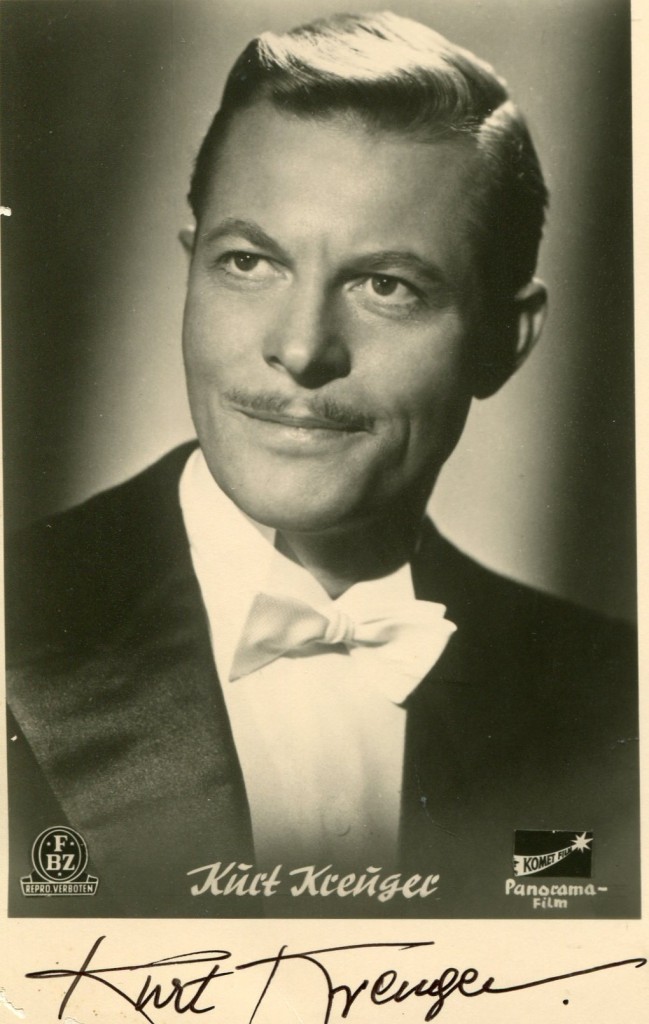
“I was running across the dunes when Ingram jumped on top of me and pressed my head into the sand to suffocate me. Only Zoltan forgot to yell cut, and Ingram was so emotionally caught up in the scene that he kept pressing my face harder and harder. Finally, I went unconscious. Nobody knew this. Even the crew was transfixed, watching this dramatic ‘killing’. If Zoltan hadn’t finally said cut, as an afterthought, it would have been all over for me.”
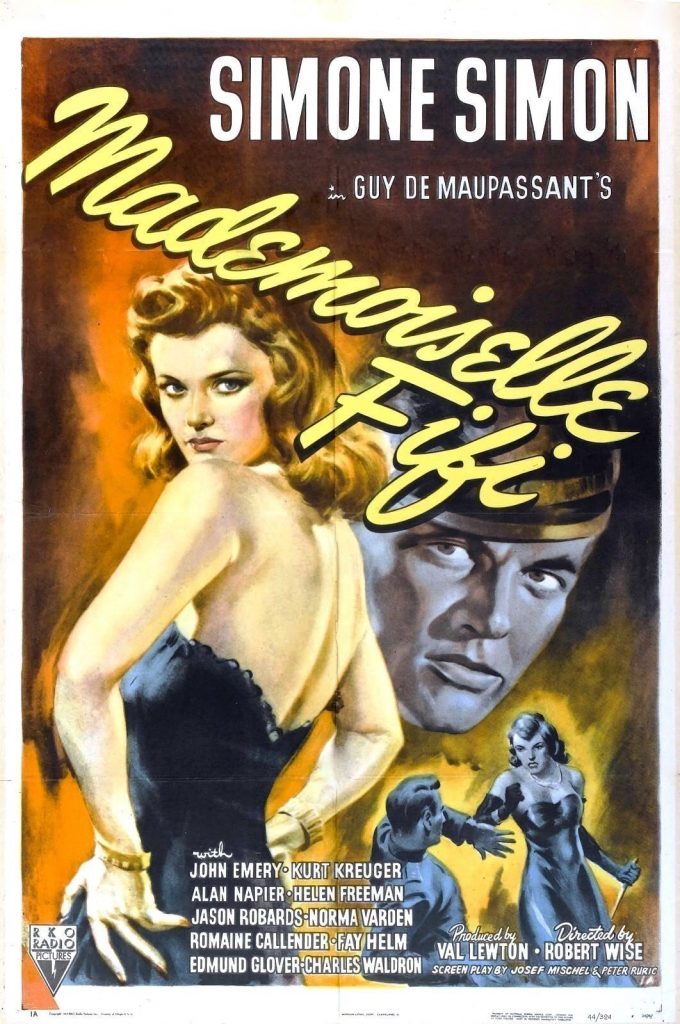
When Kreuger, who became an American citizen in 1944, was once asked if there were any social repercussions at the time for playing Nazis, he replied: “I sensed some kind of hatred from neighbours after I had bought my first home in Hollywood, but for the rest of it, I was welcome everywhere. I’ve never very much considered myself a German. This may well be the key to why I’ve always felt like a cosmopolitan.” In fact, Kreuger spent most of his life outside Germany. He was born to wealthy parents in Michendorf, near Potsdam, and raised in St Moritz, Switzerland. He was educated at private schools, where he developed a lifelong passion for skiing. After attending the London School of Economics, he moved to New York where he studied medicine at Columbia University. When he dropped out of college in 1937, he failed to follow his businessman father’s wish that he become a doctor, and his allowance was cut off.
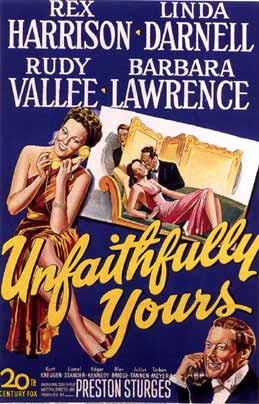
However, thanks to Hitler, he began to get work in films from 1940, making his screen debut as a U-boat seaman (billed as Knud Kreuger) in Edward Dmytryk’s Mystery Sea Raider (1940). The following year he appeared on Broadway as a German lieutenant in Maxwell Anderson’s Candle in the Wind, an anti-Nazi drama starring Helen Hayes, who remained a friend. Although Robert Wise’s Mademoiselle Fifi (1944), in which Kreuger played the title role, was set in 1870 during the Prussian occupation of France, it was plainly a reference to contemporary events. Kreuger played a sadistic Prussian officer, whose nickname derived from his constantly saying “fi fi” (fie fie), determined to seduce a patriotic laundress (Simone Simon) and humiliate France.
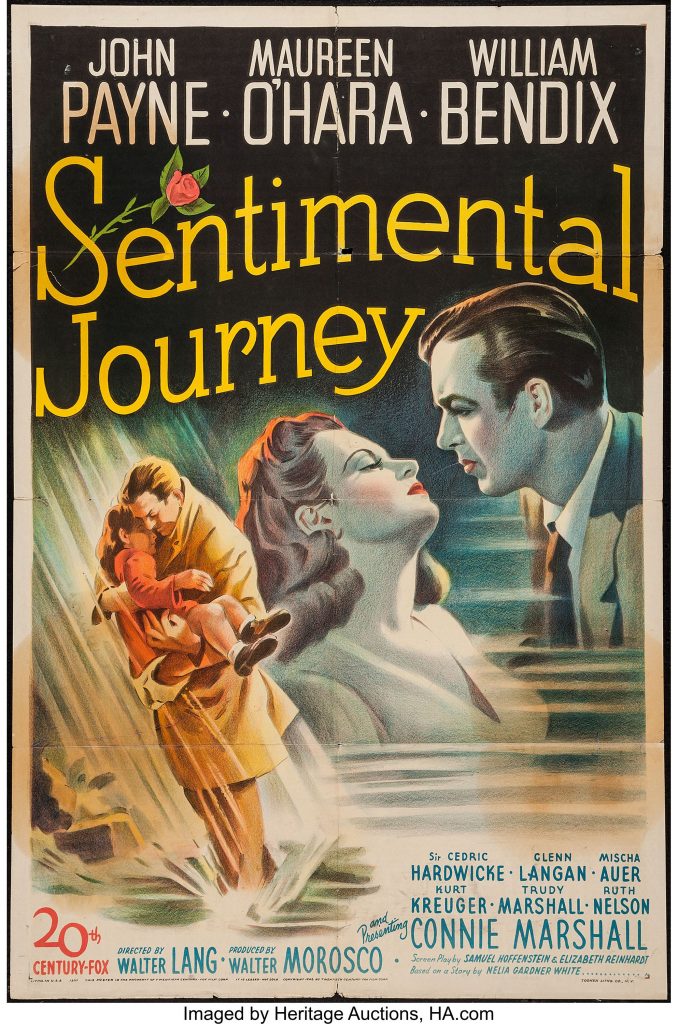
After the war, Kreuger began to get slightly different parts, usually as the “other man”, the first being in Henry Hathaway’s effective film noir Dark Corner (1946) as a smooth, crooked lawyer and womaniser who meets a violent end with a poker. Preston Sturges then cast him as the suspected lover of Linda Darnell, married to jealous orchestral conductor Rex Harrison in Unfaithfully Yours (1948). While conducting three pieces, Harrison imagines different ways of dealing with his wife’s “infidelity”. First, he kills her and Kreuger gets the blame; second, he allows the young couple to run away; and lastly, he challenges Kreuger to a fatal game of Russian roulette. Kreuger is admirable in a rather thankless role. Unsatisfied with the parts he was being given, in 1950 Kreuger moved back to Europe, where he spent much time skiing, got married, and made four German films including Angst (Fear, 1954), directed by Roberto Rossellini, in which he played married Ingrid Bergman’s lover. On his return to the US, Kreuger ended six years of marriage, which he called “three years of bliss, three years of hell”, losing custody of his son. He resumed his American career in television series and a few films, mainly as German officers again.
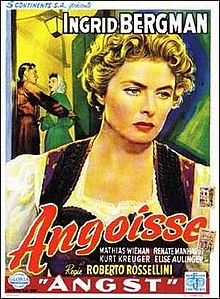
He suffered two disappointments, one losing the role of the “good” German soldier in The Young Lions (1958) to Marlon Brando, and the other after having auditioned for the role of Captain von Trapp opposite Mary Martin in the Broadway musical The Sound of Music in 1959, and being turned down for looking “too young”. (Ironically, the part was given to Theodore Bickel, eight years his junior.) Kreuger’s last feature was Roger Corman’s The St Valentine’s Day Massacre (1967), in which he played a hitman of gangster Bugs Moran (Ralph Meeker).
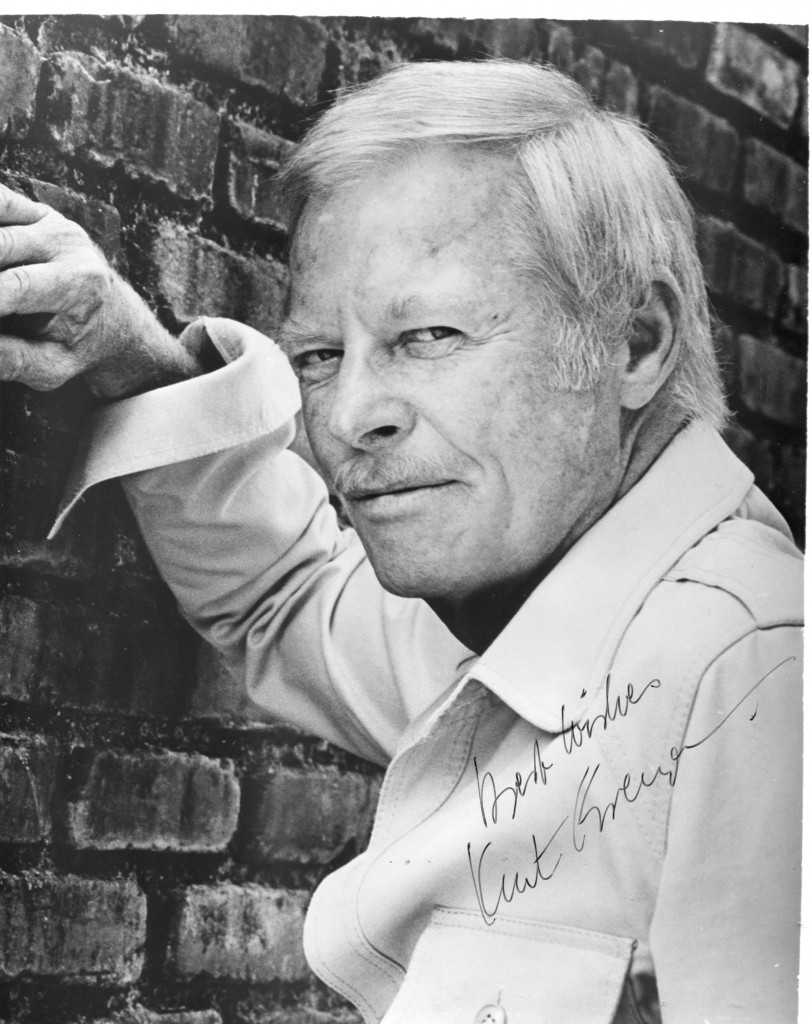
On his retirement from acting, Kreuger made a fortune in real estate and property development in California. He had a mansion in Beverly Hills, a second home for skiing in Aspen, Colorado, and travelled the globe in luxury.
· Kurt Kreuger, actor, born July 23 1916; died July 12 2006.
The above “Guardian” obituary can also be accessed online here.


